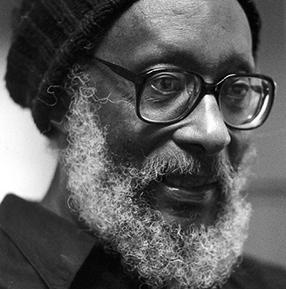A few nights ago, I watched Malcolm Gladwell interview Wendy Kopp, Founder and CEO of Teach For America. I sat with about 450 young, mostly white people, and listened to Kopp talk about TFA’s mission to end educational inequity along economic lines, and its successes in poor communities in New Orleans, Newark, Philadelphia, and elsewhere in the nation.
As inspiring as it was to hear, I couldn’t help but ponder the irony of it all: Kopp, Michelle Rhee (former DC Schools Chancellor who is now CEO of Students First, a national movement with a mission to “transform public education”), and Secretary of Education Arne Duncan are the national voices of educational reform. The population they are best serving, school age children living in poor urban communities, is overwhelmingly Black and Brown. Where are the Black and Brown national leaders in this effort and why aren’t they getting more attention? Other than Geoffrey Canada, who’s impressive work with the Harlem Children’s Zone has given him a prominent presence in the educational reform debate, who else in the Black and Brown communities is stepping up nationally to address this issue?
I applaud Kopp, Rhee and Duncan’s efforts and do not question their commitment to equitable educational opportunities for all children. But they cannot and should not be the only voices speaking on this national platform. Education is the civil rights issue of the 21st century. Where are our civil rights leaders on this issue? And where are we?
We need to be there, in leadership and with financial support, because we are going to have to be part of the solution. We need leaders who have the cultural competency and sensitivity to help everyone understand the opportunities and take advantage of them. We need to see and hear from the Black and Brown leaders involved in determining policy, working towards its implementation and enabling our communities to buy in to the proposed changes.
We also need to be there because we have a vested interest in finding solutions. Those of us who care deeply about the fate of Black and Brown boys, be we parents or simply people who don’t want to see the last 100 years of progress reversed because half our population is undereducated or in prison, should be present for and focused on this debate.
This is particularly important because our educational underachievement cuts across class lines and the current leaders of the debate are not at all focused on this aspect of the problem. But we should be–we at Ground Control Parenting certainly are–and we need to make sure that there are people in the national debate focused on this as well.
Who should be stepping up to address this national crisis? Should leadership come from our existing civil rights leadership? The NAACP? The Urban League? The NAACP Legal Defense Fund? The United Negro College Fund? The Congressional Black and Hispanic Caucuses? All of the above? Who are the educational innovators out there who haven’t yet captured the national spotlight?
Several factors further muddle this education reform debate: there is no silver bullet that will fix everything, there are no standard means of figuring out what works, everyone wants to have the right answer (or at least the right answer for now). Perhaps we need our existing civil rights organizations to identify significant people of color in the game (including those in the trenches: the Black and Hispanic school chiefs in major US cities), get them together, help them fashion strategies that have proven to work and that can have the most significant impact, and jointly promote these strategies, thereby bring more of us into this national debate.
What can we as parents do? We can get smart on the issues. We can get involved in local educational politics—engage in policy discussions, learn where candidates stand on these issues—to understand the choices being made and how these choices impact our children. We can encourage our civil rights organizations to take a more prominent role. With so much at stake, we cannot afford to stay on the sidelines.
Carol Sutton Lewis
Readers, what are your thoughts on our voice in the educational reform debate? Let us hear them!






Suberb!!
According to the mission of the National Urban League, economic empowerment is their primary goal. It would seem that prioritizing excellence in education for black children might create the cornerstone towards economic prosperity coupled with an intellectual citizenry. Superior academic skills and preparation in a knowledge-based economy are the most effective tools to close the achievement gap and successfully compete on a global scale. Engaging our stakeholders and legislators to focus on this issue is essential. Our sons and daughters deserve nothing less.
You may want to familiarize yourself with the work of Ronald Ferguson, Roland Fryer and Pedro Noguera, all African American intellectuals and academics and thought leaders with respect to equity in education, the academic achievement gap and matters of race, gender, and class in education.
Ferguson and Fryer are Harvard economists. Noguera is a sociologist and urban education specialist currently at NYU.
Thanks for this comment. You are right, these are important people to focus on and listen to. We at GCP are quite familiar with their work, and will be discussing them in future posts. In fact, one of our upcoming posts is an interview with Dr. Ferguson, who has specific suggestions as to what parents can do about the achievement gap. Please watch for it!
Also add Dr. Ron Mincy and Dr. Linda Darling Hammond (who Obama did not select for Secretary of Education). Yes, we need to share resources!
I would add Melody Barnes, in her role as Domestic Policy Advisor in the Obama administration, to the list of voices of color in the national education debates.
Nevertheless, you are absolutely on point with your questions. I would also add that a trend in the debates is to blame our educational issues on “bad teaching.” The current generalized demonization of classroom teachers is unfair and performs the additionally troubling act of making teaching careers less appealing for young women and men of color for whom education has been a more open career path.